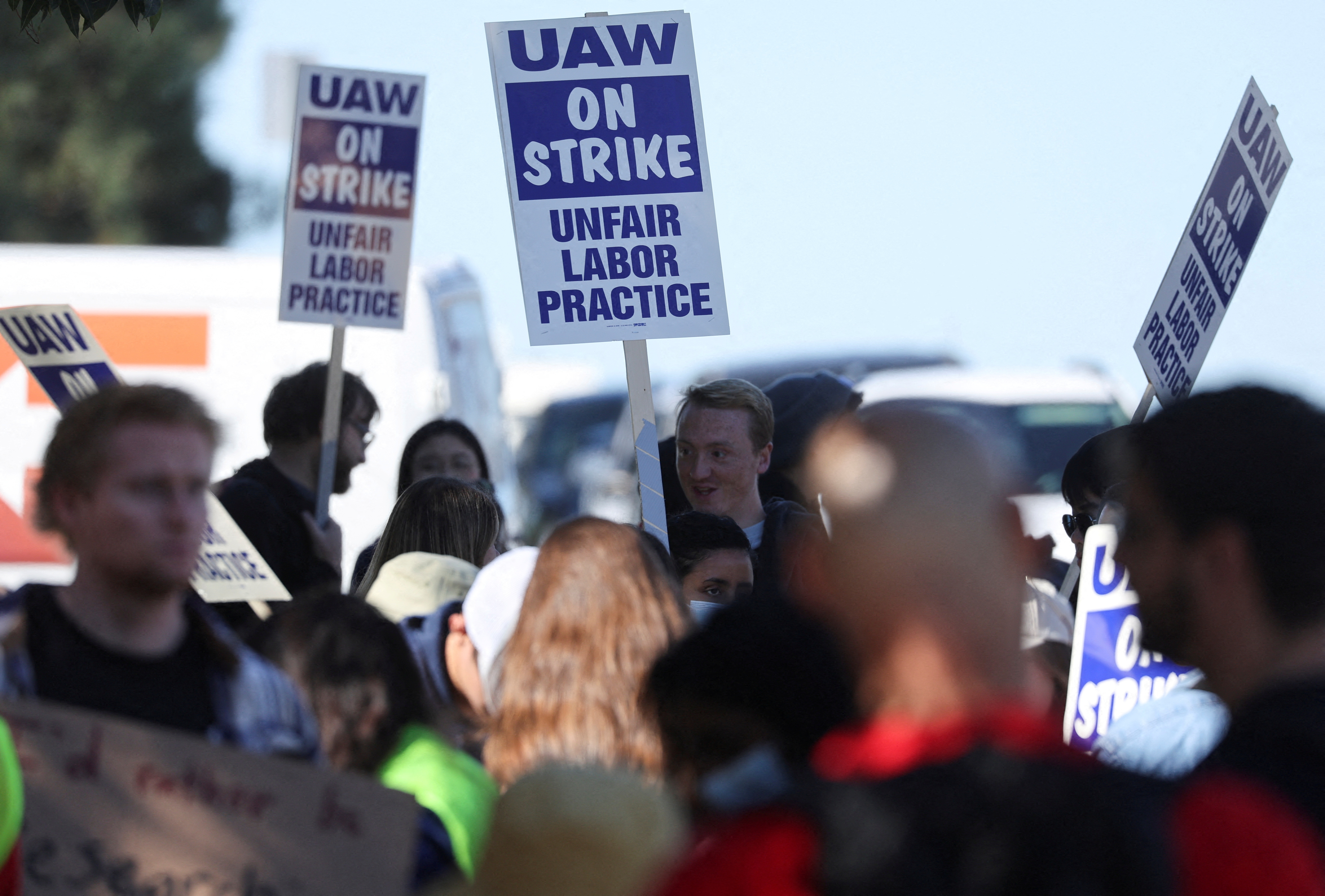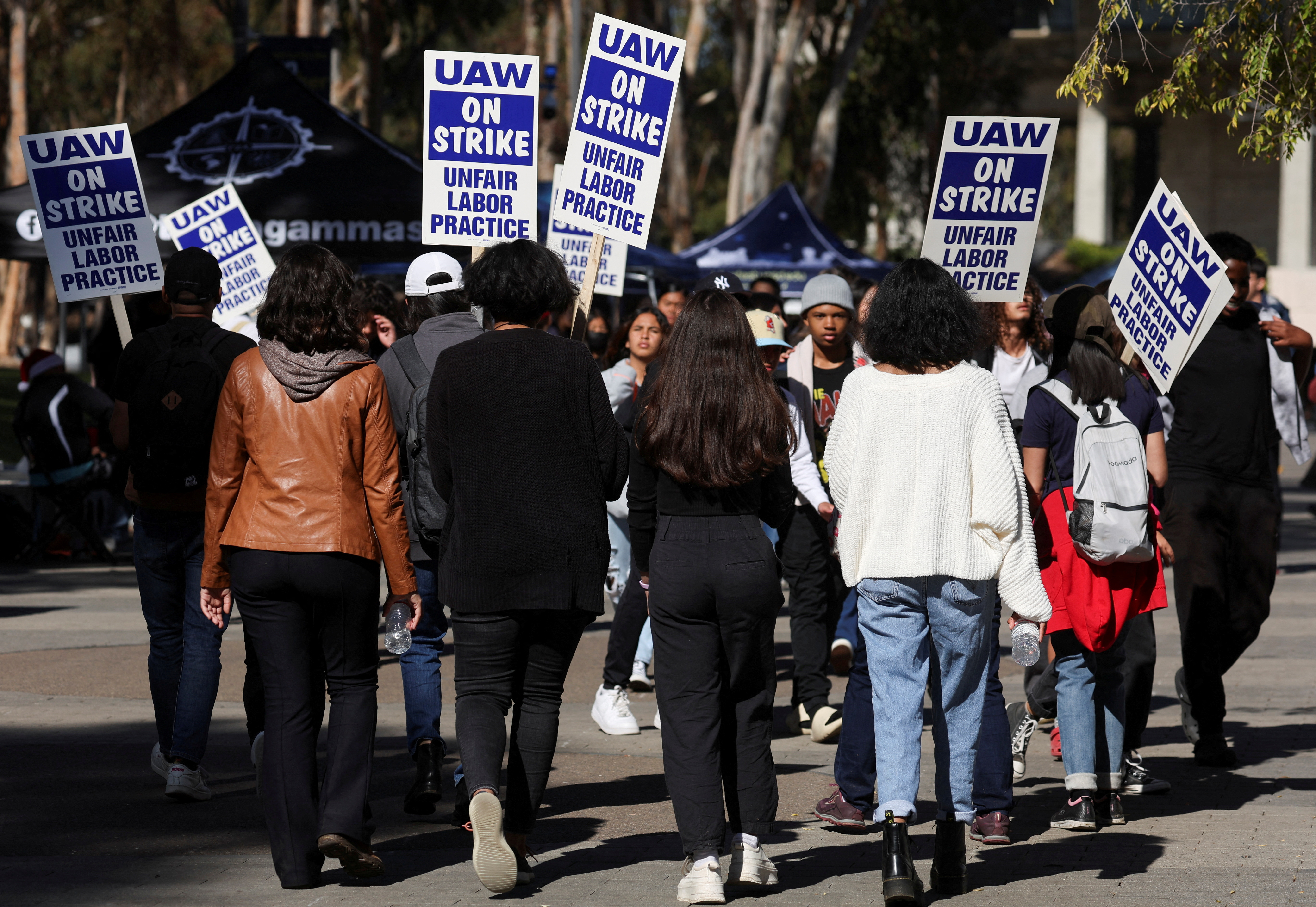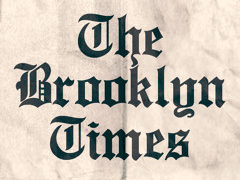University of California (UC) academic workers ended a nearly six-week strike that unions described as the biggest work stoppage ever at a U.S. institution of higher education, union leaders said late on Friday.
Thousands of academic workers went on strike at UC campuses throughout the state on Nov. 14, forming picket lines and staging noisy protests to demand better wages for teaching assistants and others.
The walkout disrupted final exams, study sessions and the grading of papers throughout California’s flagship university system.
Some 48,000 academic workers represented by the United Auto Workers will return to work in January after the winter break, union leaders said, after ratification votes by large majorities of two fractious UAW bargaining units.
The striking scholars included teaching assistants, researchers, tutors and other graduate student instructors at all 10 UC campuses and the Lawrence Berkeley National Laboratory.
UC officials did not immediately respond to a request for comment outside business hours.
When the strike began, the union said its members were working themselves into extreme debt with a base salary for part-time employees starting at $24,000 per year.
University administrators and union leaders reached an agreement last week after a series of negotiations. The thousands of striking academic workers began voting this week on whether to ratify the deal with the University of California.
The agreement was hailed by union and university supporters as a landmark labor deal that would set a new national standard, boosting wages and working conditions for graduate students employed at public universities.
The agreement would provide wage increases of up to 66% over the 2-1/2 year life of the contract, according to leaders of the two UAW union locals representing the 36,000 graduate students covered by the deal.
By the fall term of 2024, the minimum nine-month salary for teaching assistants would rise to $36,500 at UC Berkeley, UC San Francisco and UCLA, and to $34,000 at other campuses, according to the university.
Some detractors said the pact falls short in meeting the living costs grad students face in pricey cities where many UC campuses are located, and critics faulted the deal for giving up on union demands to tie wage gains to housing costs.
Related Galleries:




